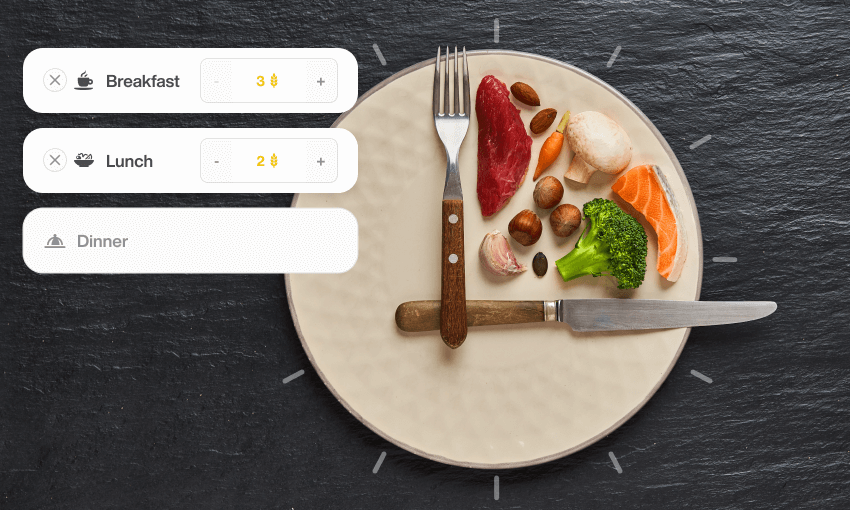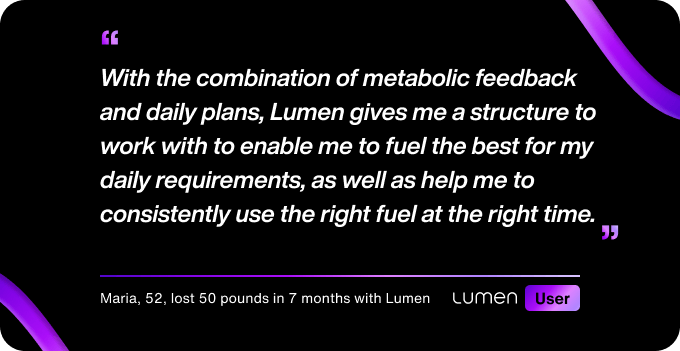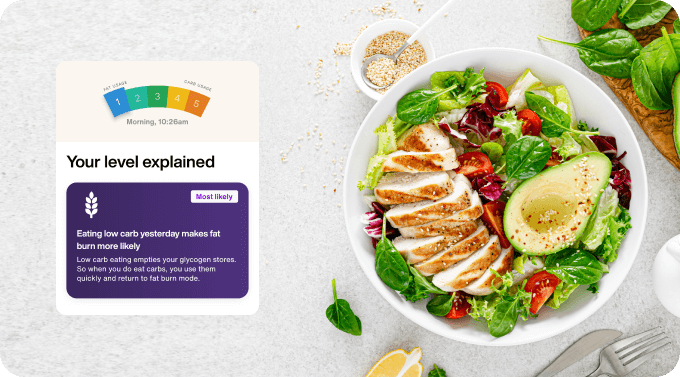Master Your Eating Times


We’ve all been there. You know, that balancing act of juggling our meals around other commitments - whether it’s work, family, or life. Eating too late, not eating enough, eating too much, eating unnecessarily - sound familiar to you?
The thing is, this delicate equilibrium also creates unpredictable eating patterns that can trickle down and affect our diets, sleep patterns, workouts, and how we feel throughout the day. More importantly, these can trigger metabolic syndrome and lead to poor health risks and outcomes. Getting a grip on integrating healthy eating habits and optimal timing for meals is the key.
Read on to see how.
With so many distractions, we tend to undervalue how important eating times are to maintaining a sustainable lifestyle. The good news is taking advantage of this shift is relatively easy and requires minimal heavy lifting.
No matter what your goal is - whether it be weight loss, fitness or sleep, it's important to understand how your metabolism works.
Metabolic health refers to the proper functioning of metabolic processes, which are responsible for converting food and drink into energy and building blocks of the body.
Metabolic flexibility, a key component of a healthy metabolism, is the ability of our bodies to switch between using these different sources of fuel, such as carbohydrates and fats, depending on the availability of those fuels.
When you're metabolically flexible, your body can easily switch between burning carbs for energy during high-intensity exercise and burning fat for energy at rest. This is important for weight loss because it means your body is able to burn fat efficiently, even when you're not exercising.
How to achieve metabolic flexibility with your meals
One way to do this is by eating at the right times. For the best results, you should personalize your eating times based on your current metabolic level.
A study published in the International Journal of Nutrients (1) found that people who ate a larger breakfast and a smaller dinner lost more weight and had improved metabolic health markers compared to those who ate the opposite way around.
Ever heard that old-adage - "breakfast like a king, lunch like a prince, and dinner like a pauper"? A good rule of thumb is to make sure you're eating your largest meal earlier in the day and gradually decreasing the size of your meals as the day goes on.
For example, eat a balanced breakfast to start the day off on the right foot, as it can help improve concentration and energy levels. Deciding to eat whole food for lunch as well can further align you with your nutrition goals, serving as a healthy strategy to prevent overeating later in the day.
Top tips from our Lumen experts:

Nutrition and exercise are like two peas in a pod. They go hand-in-hand, affecting each other, relying on each other and making each other better. So when we’re all geared up to exercise for the day, studies have shown that when and what should you eat is the key to getting it right.
If you plan to exercise first thing in the morning, eat a light breakfast at least an hour before your workout. Make it a carb meal. Eating or drinking carbohydrates has been shown to boost workout performance and allows you to work out for longer at a high intensity. Skipping this light meal could come back to bite you with that sluggish and energy-drained feeling.
Consuming simple carbohydrates might act as immediate energy providers, but their effect can wane rapidly. Consequently, if your pre-workout meal is overburdened with simple carbs, you might experience an energy slump before your workout concludes.
On the other hand, complex carbohydrates offer a more steady and enduring energy supply. As you prepare for your workout, consider foods rich in complex carbs such as rolled oats, buckwheat, whole grain bread, lentils, assorted beans, whole grain pasta, blueberries, raspberries, apples, potatoes, and yams.
Adding carbohydrates to your menu is best for reaching maximum energy. Some more examples include:
Since nutrition plays a critical role in muscle-building and recovery, the foods you eat after a workout can make or break your progress in the gym. So, what is the best post-workout meal? And how much of it should you eat?
Mia Johanna Dige, a personal trainer and Lumen’s metabolic coach recommends a healthy carbohydrate, like half a banana before medium to high-intensity workouts if the individual is at a Lumen level 1 or 2 (fat burn). This is due to the fact that during higher-intensity workouts, we rely on glycogen stores for energy.
Top tips from our Lumen experts:

The connection between sleep and weight is as strong as the bond between peanut butter and jelly. Barak Alon, Lumen’s product manager, shares that Lumen users that sleep approximately 7-9 hours per night are 35% more likely to reach a fat-burn state in the morning compared to users that sleep approximately 4-6 hours per night.
Because carbs are better metabolized during the day, eating them too close to bedtime can cause indigestion and make it harder to fall asleep. Eating heavy, high-fat foods before bed, are also a ‘no-no’ because they take longer to digest and cause discomfort. Instead, opt for eating a light snack or a small meal earlier in the evening to improve the quality of your sleep.
Top tips from our Lumen experts:

It's impossible to live in a worry-free bubble, but anxiety can cause your adrenal gland to pump out too much cortisol, and high levels of the stress hormone change how your metabolism stores fat. For many people, stress can have a direct impact on their weight. A person's weight loss or gain will vary depending on the situation and the person. When you’re stressed, your body tends to go into “fight or flight” mode, which in some cases, may lead to skipping meals and poor food choices.
We also know that stress makes it difficult to fall asleep, in turn affecting our metabolic flexibility.
Top tips from our Lumen experts:
Many are not aware of how much of an impact the timing of meals is on your journey to maintaining sustainable weight loss and a healthier lifestyle. Tracking and measuring your outcomes will help keep you in check. It might be a struggle at first to create that schedule and stick to it but once you figure it out, it will do wonders for your body and health.
Sources:
Lopez-Minguez J, Gómez-Abellán P, Garaulet M. Timing of Breakfast, Lunch, and Dinner. Effects on Obesity and Metabolic Risk. Nutrients. 2019 Nov 1;11(11):2624. doi: 10.3390/nu11112624. PMID: 31684003; PMCID: PMC6893547.
"Meal timing and composition influence ghrelin levels, appetite scores and weight loss maintenance in overweight and obese adults" - Journal of Clinical Endocrinology and Metabolism (2016)
Nedeltcheva AV, Kilkus JM, Imperial J, Schoeller DA, Penev PD. Insufficient sleep undermines dietary efforts to reduce adiposity. Ann Intern Med. 2010;153(7):435-441. doi:10.7326/0003-4819-153-7-201010050-00006

Abigail Markman is a Nutritionist, with a MS in Nutritional Sciences,